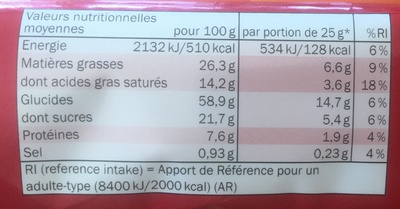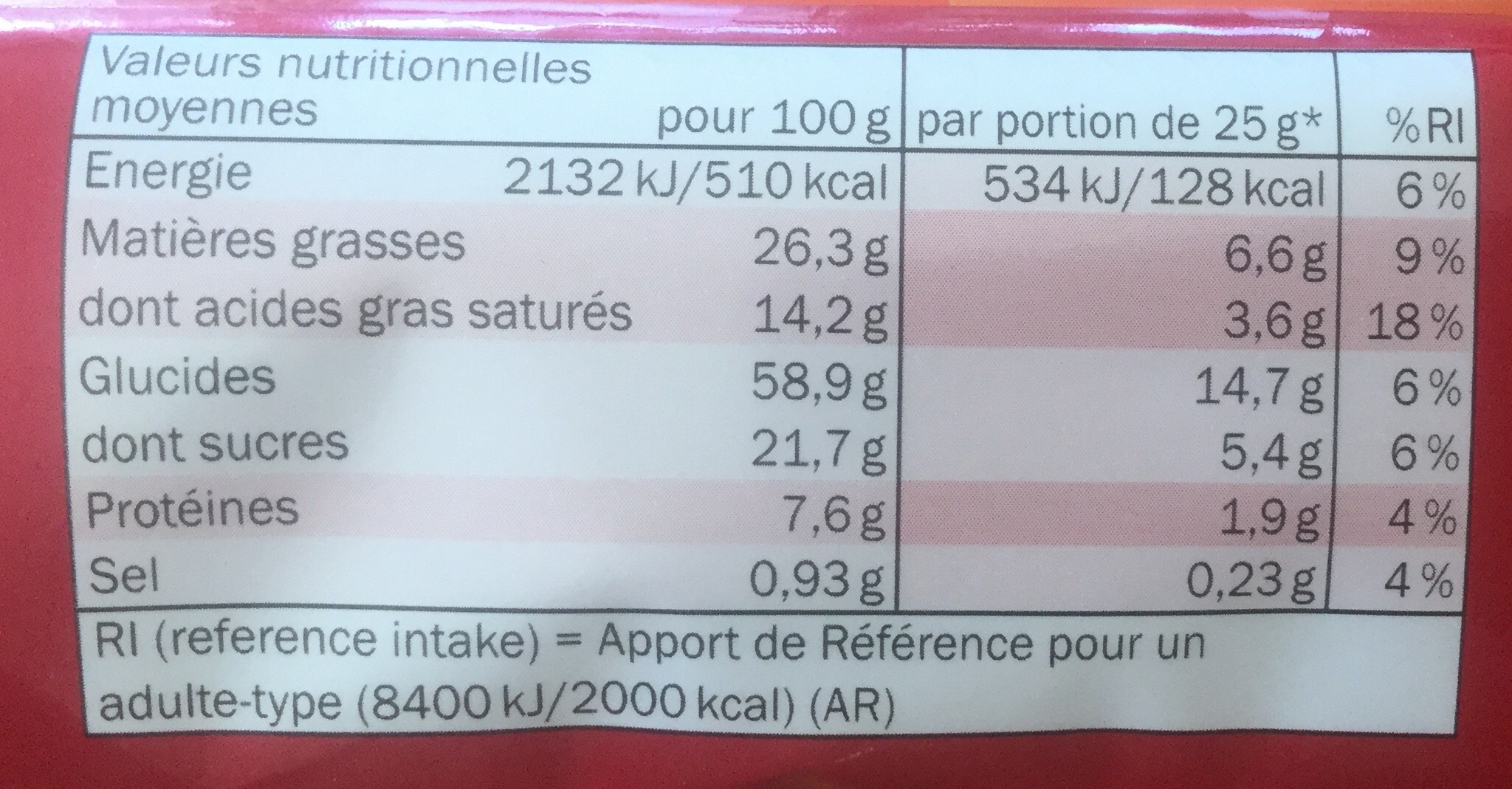Grandino chocolat noir - Sondey - 200 g (16 biscuits)
Ambiguous barcode: This product has a Restricted Circulation Number barcode for products within a company. This means that different producers and stores can use the same barcode for different products.
×
This product page is not complete. You can help to complete it by editing it and adding more data from the photos we have, or by taking more photos using the app for Android or iPhone/iPad. Thank you!
×
Barcode: 20176594
Common name: Biscuits sablés fins avec 26% de chocolat noir
Quantity: 200 g (16 biscuits)
Packaging: Plastic, fr:Film et barquette plastique, fr:Point vert, fr:Triman
Brands: Sondey
Categories: Snacks, Sweet snacks, Biscuits and cakes, Biscuits, Chocolate biscuits, Dark chocolate biscuits, Digestives covered with chocolate
Labels, certifications, awards:
Sustainable farming, Made in Germany, UTZ Certified, UTZ Certified Cocoa
Stores: Lidl
Countries where sold: France
Matching with your preferences
Environment
Carbon footprint
Packaging
Transportation
Threatened species
Labels
Report a problem
Data sources
Product added on by openfoodfacts-contributors
Last edit of product page on by roboto-app.
Product page also edited by aleene, elttor, moon-rabbit, packbot, segundo, sigoise, tacite.











